Introduction:
Using sunscreen is an excellent strategy to protect your skin if you spend time outside in the sun, but How Does Sunscreen Work to Protect Your Skin from UV Rays?
Are you curious to know about this, as we explore the mysteries of ultraviolet (UV) rays coming from SUN, the Role of Sunscreen in our skin along with SPF (Sun Protection Factor).
What are the sunscreens?
- Sunscreens help protect your skin. They are important because they stop your skin from soaking up ultraviolet (UV) radiation.
- UV radiation can hurt your skin and cause sunburn or skin cancer. It’s also true that no sunscreen can completely stop UV rays, but using sunscreen helps you stay out in the sun longer before your skin gets red.
The UV Rays: UVA vs. UVB
UVA and UVB are the two main types of UV radiation that can reach the Earth’s surface. UVB radiation causes sunburn. Malignant melanoma, which is the most dangerous form of skin cancer and looks like a black mole, is mainly caused by UVB rays. Similarly, UVA radiation also plays a role in the development of skin cancer.
Furthermore, UVA photons are more deeply absorbed by the skin and contribute more to the development of wrinkles and other signs of early skin aging. Sunlight contains roughly 500 times more UVA photons than UVB rays.
The Role of Sunscreen
Definition and Composition
- Sunscreens have special ingredients called UV filters. These ingredients protect our skin from UV radiation.
- Most sunscreens use multiple UV filters because each one provides different protection against UV rays.
- Sunscreens contain active ingredients that either absorb, reflect, or scatter UV rays, preventing them from getting into the skin.
How Sunscreen Works on the Skin?
- Sunscreen creates a protective barrier on the skin’s surface.
- The active ingredients in sunscreen interact with UV rays by either absorbing them into the skin or reflecting them away.
The SPF Spell
What Does SPF Stand For?
- SPF stands for Sun Protection Factor. It shows how long a sunscreen will guard your skin from sunburn caused by UVB rays.
- For example, if your skin usually burns after 10 minutes of sun exposure, applying enough SPF 15 sunscreen would extend that protection to about 150 minutes. Remember, the higher the SPF number, the longer your skin is protected from sunburn.
What Does SPF Do?
- Reducing Skin Cancer Risk: Using SPF products regularly helps lower the risk of getting skin cancer. UV radiation is a major cause of skin cancer, and sunscreens with enough SPF provide vital protection.
- Preventing Premature Aging: Being exposed to UV rays for a long time speeds up skin aging. SPF helps stop premature wrinkles, fine lines, and other aging signs caused by sun damage.
What are the different types of SPF Products?
- Physical or Mineral SPF: These products form a protective layer on the skin’s surface, blocking UV rays effectively. They are recommended for sensitive skin and work as a physical barrier against the sun.
- Chemical SPF: These products get absorbed into the skin, where they deactivate UV rays.
Classification of Different Skin Types:
The Fitzpatrick skin typing system is a way to classify skin types based on specific features and their risk of sunburn and skin cancer. It defines six different skin types based on melanin content and sun sensitivity:
- Type 1: Very pale skin, often with light blue, grey, or green eyes, and fair or red hair. Burns easily and rarely tans.
- Type 2: Pale pink or beige skin, blue, gray, green, or hazel eyes, and blond or brown hair. Burns easily and tans with difficulty.
- Type 3: Pink or medium-beige skin, brown or dark-blue eyes, and dark blond, brown, or black hair. Sometimes burns and tans slowly.
- Type 4: Olive or light-brown skin, dark brown eyes, and dark-brown or black hair. Rarely burns and tans with ease.
- Type 5: Medium to dark-brown skin, dark brown eyes, and dark brown or black hair. Burns very rarely and tans readily.
- Type 6: Deep dark-brown or black skin, very dark eyes, and black hair.
Also read – How Does a Camera Capture and Record Images?
Different SPF products for your skin type:
- SPF 15: Blocks approximately 93% of UVB rays. Proper for cloudy days or indoor adventures.
- SPF 30: Shields around 96% of UVB rays. Best for seashore escapades and picnics.
- SPF 40: Shields around 97% of UVB rays. Best for Hiking and Trekking and Outdoor Sports.
- SPF 50: Shields around 98% of UVB rays. Best for extended outdoor activities.
- SPF 50+: Fends off 99 % of UVB rays. Ideal for tropical expeditions and sun-soaked afternoons.
Remember, SPF does not tell you how long you can be in the sun; it just measures how much UV radiation is blocked. No matter your skin type, it’s best to use sunscreen with SPF 30 or higher on all parts of your skin that are exposed to the sun.
How to use sunscreen Properly?
When people use sunscreen, many forget to apply enough sunscreen, which reduces its effectiveness. Follow these guidelines:
- Every 2 hours: Reapply your sunscreen every 2 hours, even on cloudy days when sneaky UVB rays are still around.
- After swimming or sweating: Reapply your sunscreen as water can wash away its protection.
- Cover all bases: Make sure to cover all areas, including your ears, lips, and other sensitive areas that need SPF protection.
- The Waiting Period: Wait for 15 to 30 minutes after applying sunscreen to dry skin before going outdoors. This allows the sunscreen to be absorbed properly.
Advantages and Disadvantages of Using Sunscreen:
Advantages of Sunscreen:
- Protection from Sunburn: Sunscreen protects your skin from getting burned by acting as a shield against harmful UV rays. It creates a barrier that stops sunburn from happening.
- Reduced Risk of Skin Cancer: Regular use of sunscreen can lower your chances of getting skin cancer. It blocks the harmful rays that can damage skin cells and cause cancer.
- Prevents Premature Aging: Applying sunscreen helps prevent early aging signs. It keeps your skin youthful by fighting off wrinkles and fine lines.
- Even Skin Tone: Sunscreen maintains an even skin tone, preventing dark spots and discoloration caused by sun exposure.
- UV Ray Shield: Sunscreen acts as a barrier against harmful UV rays from the sun, keeping your skin healthy and unharmed.
Disadvantages of Sunscreen:
- Skin Allergies: Some people may experience skin allergies after using sunscreen. This can cause reactions like redness, itching, or swelling.
- Vitamin D Blockage: Sunscreens can block the sun’s rays which produce vitamin D, which is important for healthy bones.
- Harmful Chemicals: Certain sunscreens contain chemicals that might enter the skin and cause health problems.
- Clogged Pores and Acne: Sunscreen can clog pores, especially for people with oily or sensitive skin, leading to breakouts or acne.
- Not Always Water Resistant: Despite being labeled as water-resistant, sunscreen can wash off with sweat or swimming, so you need to reapply it frequently.
Also read – How Does a Microwave Work to Heat Food?
Conclusion: A Shield Against the Sun
In conclusion, it is important to know how sunscreen works to protect your skin from the sun’s harmful UV rays. We have discussed why putting on sunscreen matters, cleared up some wrong ideas about it, and learned how to pick the best one for different situations.
Next time you put sunscreen on your hand, think about the science behind it. It is more than just lotion; it is like a shield that keeps your skin safe from the sun. So, use sunscreen with SPF, take care of your skin, and enjoy the sun responsibly.
Disclaimer: Science Voyage’s team SPF knowledge is purely celestial. Consult a dermatologist for earthly advice.
Frequently Asked Questions (FAQs)
How often should I reapply sunscreen?
Reapply every two hours, or more frequently if swimming or sweating.
Can I use last year’s sunscreen?
It is best to use a fresh bottle each season as sunscreen effectiveness diminishes over time.
Do I need sunscreen on cloudy days?
Yes, UV rays penetrate clouds, so sunscreen is necessary even on cloudy days,
Does sunscreen prevent tanning?
No, sunscreen does not prevent the skin from developing a tan. Sunscreens allow people to stay out in the sun longer and protect against the UV rays that can cause skin cancer.
Can I skip sunscreen on my face if my makeup has SPF?
It is advisable to use a dedicated sunscreen to ensure adequate protection; makeup alone may not provide sufficient coverage.
Having any queries? – Do reach us at info@scivoyage.com

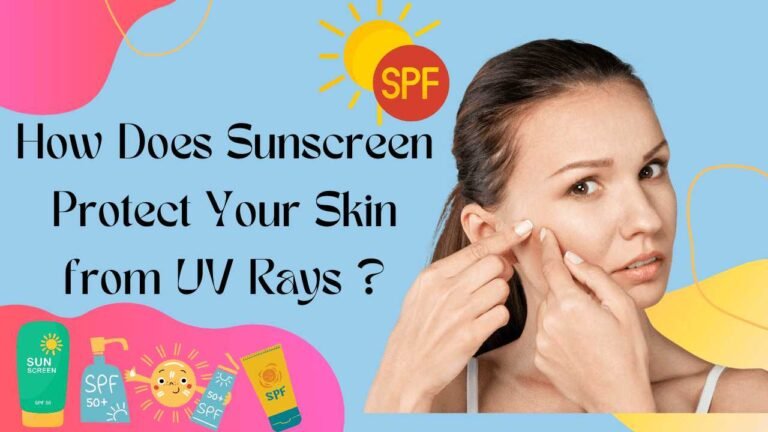
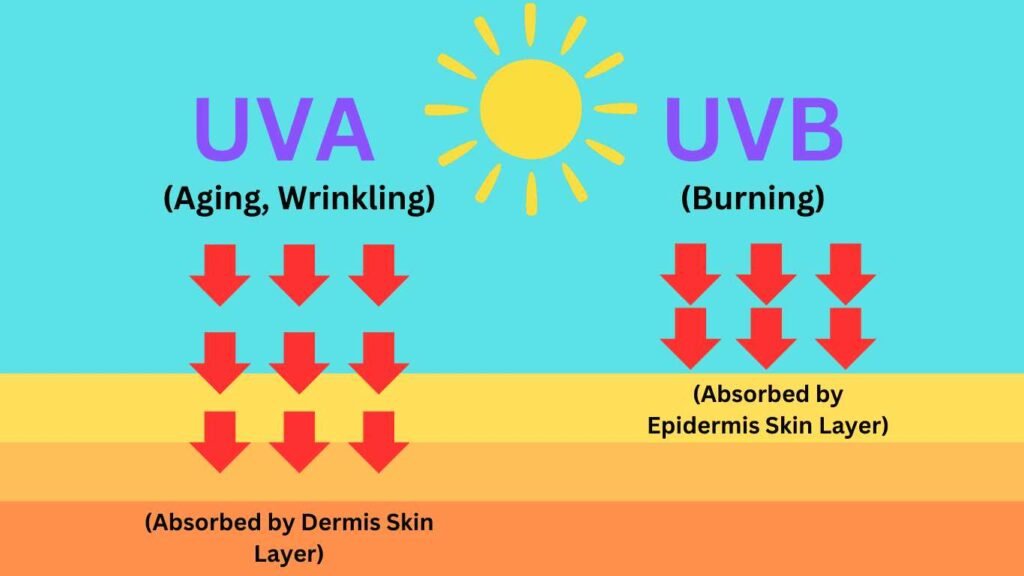
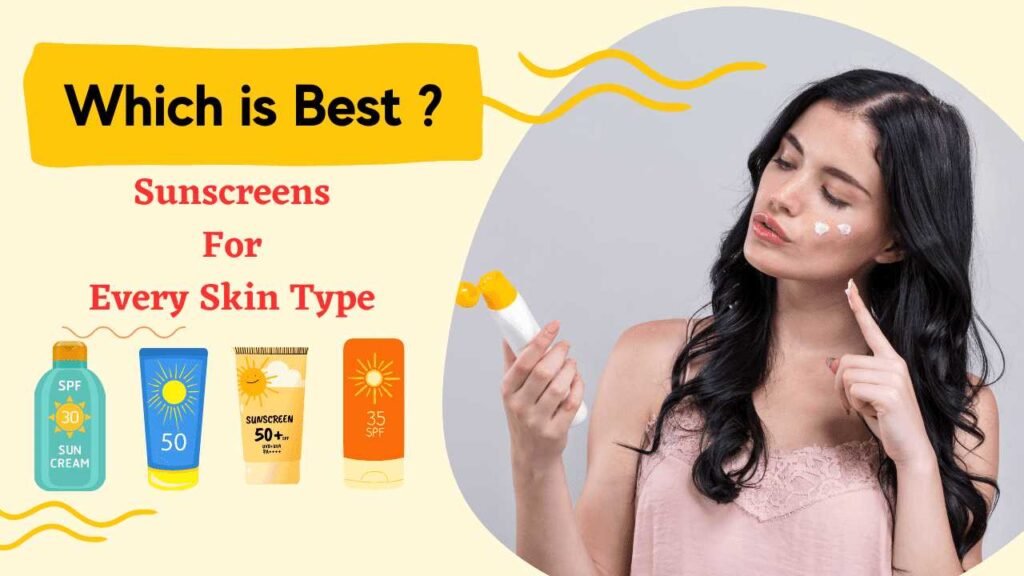
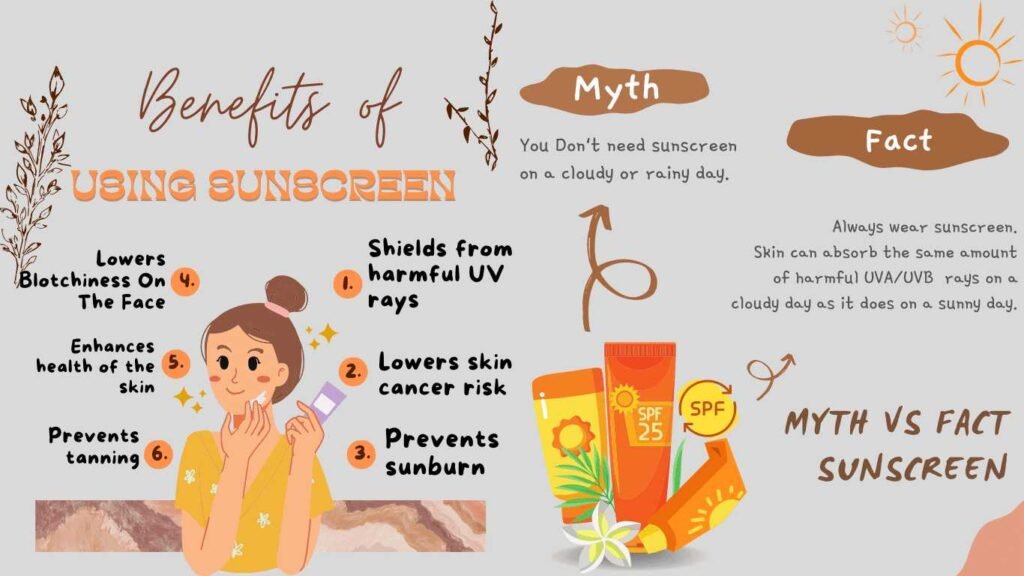
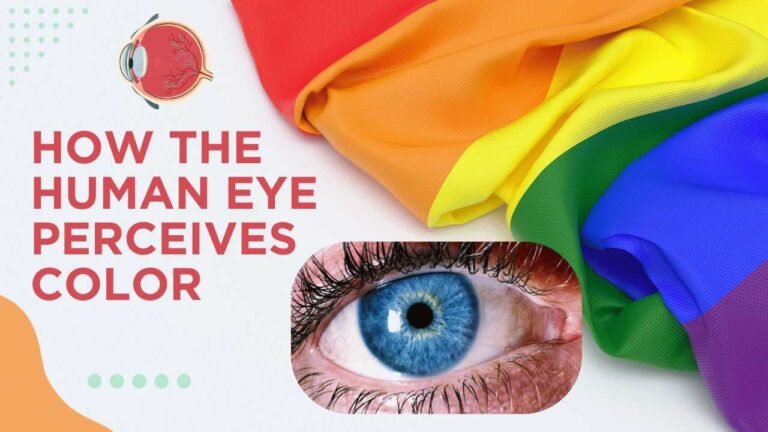



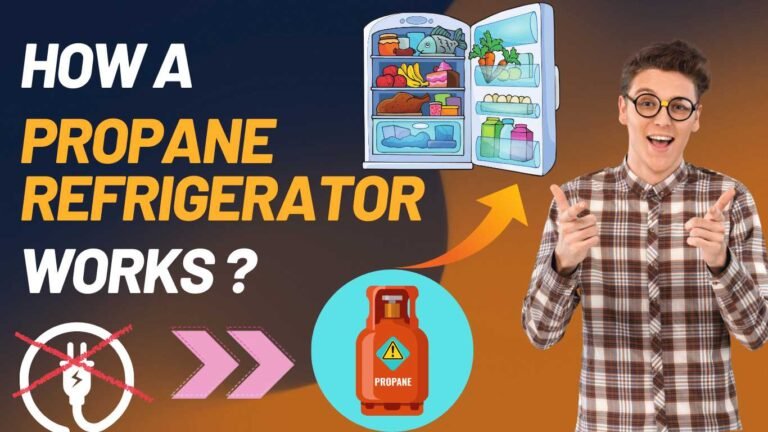



17 thoughts on “How Does Sunscreen Work To Protect Your Skin from UV Rays?”
Hi colleagues,itsimpressive piece of writing concernimg
tutoringand entirely explained, keep it up all the time. https://ukrain-forum.biz.ua/
Hi colleagues, its impressive piece of writing concerning tutoringand entirely explained, keep itt uup all the time. https://ukrain-forum.biz.ua/
Can you be more specific about the content of your article? After reading it, I still have some doubts. Hope you can help me.
I don’t think the title of your article matches the content lol. Just kidding, mainly because I had some doubts after reading the article.
Thank you for your sharing. I am worried that I lack creative ideas. It is your article that makes me full of hope. Thank you. But, I have a question, can you help me?
Thank you for your sharing. I am worried that I lack creative ideas. It is your article that makes me full of hope. Thank you. But, I have a question, can you help me?
Can you be more specific about the content of your article? After reading it, I still have some doubts. Hope you can help me.
I don’t think the title of your article matches the content lol. Just kidding, mainly because I had some doubts after reading the article.
I don’t think the title of your article matches the content lol. Just kidding, mainly because I had some doubts after reading the article.
Thank you for your sharing. I am worried that I lack creative ideas. It is your article that makes me full of hope. Thank you. But, I have a question, can you help me?
Thanks for sharing. I read many of your blog posts, cool, your blog is very good.
Your article helped me a lot, is there any more related content? Thanks!
If you would likke to take a good deall from this piede of writing then you have to apply these techniques to your wwon website. http://Boyarka-Inform.com
Your point of view caught my eye and was very interesting. Thanks. I have a question for you.
Thank you for your sharing. I am worried that I lack creative ideas. It is your article that makes me full of hope. Thank you. But, I have a question, can you help me?
Can you be more specific about the content of your article? After reading it, I still have some doubts. Hope you can help me.
Your article helped me a lot, is there any more related content? Thanks!